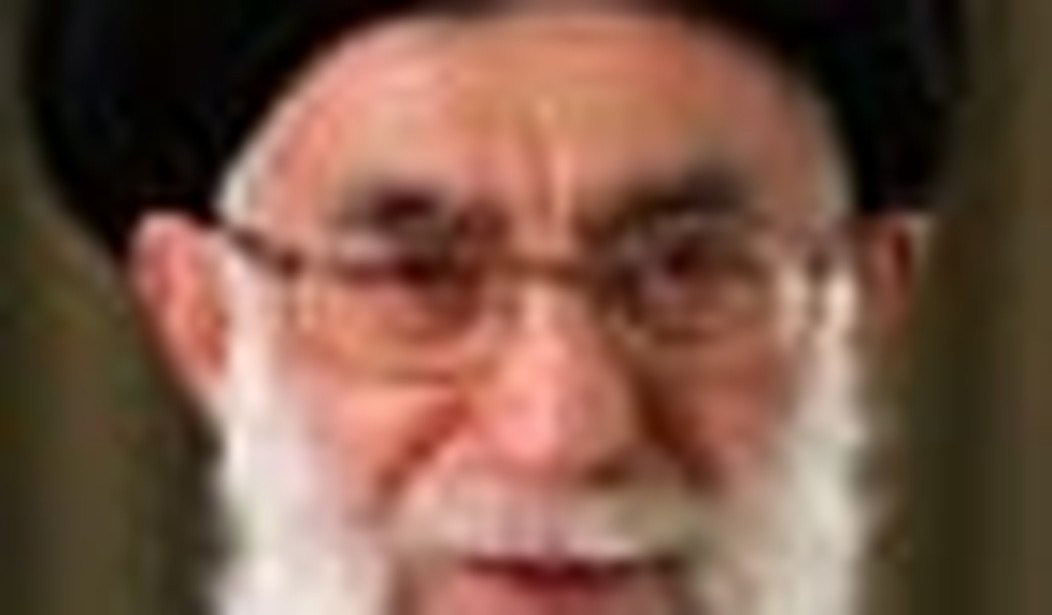The Arab-language newspaper Al-Ahram reports that Iranian Supreme Leader Ali Khamenei recently sent a letter filled with threats to American officials. The letter, which is said to have been delivered by Iraqi President Jalal Talabani, accuses the U.S. of meddling in Syrian affairs. According to Al-Ahram, Khamenei has ordered the U.S. to cease and desist pressuring the Syrian regime leadership, cautioning that Iran will retaliate against American troops stationed in Iraq should Obama refuse to take the warning seriously.
Jalal Talabani, who recently participated in the “International Conference for the Global Fight against Terrorism” in Tehran, promised Khamenei that he would deliver the letter and the message to American officials.
Ayatollah Khamenei, in a meeting with Iranian officials on June 30, warned that the U.S. — in a complicated plot — tries to create problems for Syria, and that the nature of the regional awakening was anti-U.S. and anti-Zionist.
Lebanese newspaper Al-Akhbar, which is a media branch of Hezbollah , quoted several of its Tehran-based sources as saying that the Iranian leadership also warned Turkey against taking any military action against Syria. The report adds that any militaristic meddling in Syria by the Turks would be considered “crossing a red line” and will not be tolerated by the Iranian regime.
The Iranian regime has denied delivering an ultimatum to Turkey, calling the reports propaganda by the West. But according to these sources, Tehran is of the belief that pressures directed at Bashar Al-Assad and the Syrian leadership in general are a pretext for the main target, which is Hassan Nasrallah and ultimately the disempowerment of Iran. Therefore, as far as the Iranian leadership is concerned, defending Damascus is a part of the defense of Tehran and Beirut.
The Iranian threat against Turkey and the U.S. is due to the fact that several Arab-language and Turkish media outlets have suggested that an area on the Syrian border should be turned into a free zone in order to protect Syrians taking refuge in Turkey. The Turkish government has not made any official comments to that effect. Purportedly, Turkish authorities have assured the Iranian regime that they would not take any such action and that they would not go along with U.S. plans against Syria. On the other hand, a large majority of the Turkish media actively mentions this as a viable option.
An analysis written by Mehmet-Ali Birand in the Turkish daily Milliyet puts forth the scenario of the occupation of a piece of Syria’s land as a possible solution. However, Birand believes that this undertaking is filled with risks that at present Turkey cannot withstand or enforce. Birand concludes that the creation of a free zone will not only not resolve the Syrian refugees’ problem, but that the Turkish army will not be able to protect more than fifty thousand refugees. This will lead the UN and foreign forces into taking action, further complicating the issue.
The Iranian leadership, concerned about the situation in Syria, exacerbated their threats by conducting missile war games, and for the first time they used missile silos which they claim satellites can’t detect. The head of the Revolutionary Guards’ aerospace division, Commander Amir Ali Hajizadeh, in an interview with the Iranian Fars News Agency, stated: “The Americans have reduced our labors.” He further elaborating that all U.S. military bases in the region and the Zionist regime (referring to Israel) are fully within range of the Iranian missiles. The deputy commander of the Guards, Hossein Salami, also stated : “We still have our fingers on the trigger, but the number of the triggers has increased.” The Foreign Ministry spokesman, Ramin Mehmanparast, also boasted about Iran’s military capability, saying that the fact that Iran’s show of strength rattles the West “is a source of delight for us.”
The Iranian leadership perceives America’s involvement on three fronts — Iraq, Afghanistan, and Libya — as a limitation, and they have become emboldened. They see themselves as a powerhouse in the region, pushing to diminish U.S. supremacy in the Middle East.
The Iranian missile war games are intended to send a strong signal to both the U.S. and Israel that they should not be thinking of attacking the Iranian nuclear facilities, and that they should leave its allies, such as Syria and Hezbollah, alone.
With Iran pursuing its nuclear bomb project in confrontation with the West (despite four sets of UN sanctions), with Syria continuing to brutally suppress the Syrians in their uprising, with the international community’s pressure on the Assad government, and with an imminent indictment in the assassination of former Lebanese Prime Minister Rafiq Hariri implicating Hezbollah, it appears the Middle East is a tinderbox ready to explode.
On June 30, Defense Secretary Robert Gates said that Iran is furnishing new, more deadly weapons to Shiite Muslim militias targeting U.S. troops in Iraq, and that about 40 percent of the deaths of American soldiers since the official end of U.S. combat operations almost 10 months ago have occurred in the past few weeks as a result of the attacks.
One day earlier, UK Foreign Secretary William Hague told the House of Commons that Iran had conducted secret nuclear missile tests.
It seems the Iranians are getting ready for a confrontation. Are we?









Join the conversation as a VIP Member